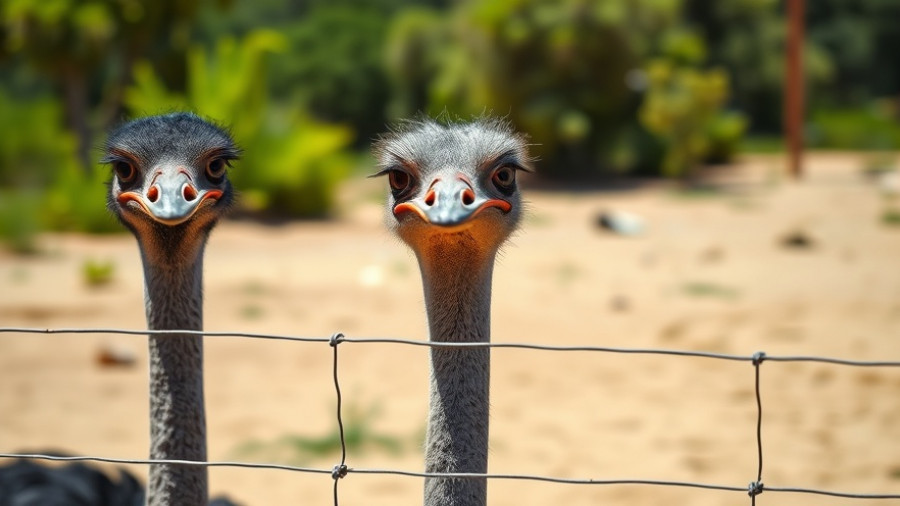
Ostrich Farming Faces Ethical Outcry in Canada
In October 2025, a devastating avian flu outbreak at an ostrich farm in British Columbia prompted Canadian authorities to order the culling of at least 400 birds. This cruel decision, met with public outrage, was a stark reminder of the ethical and health implications of ostrich farming in North America. Many concerned citizens and animal rights advocates have rallied against these practices, arguing that keeping these intelligent, sentient animals in confinement only perpetuates suffering and disease.
From Outbreak to Outcry: The Public Response
The Canadian government's culling order sparked protests, with people across Canada and the U.S. demanding accountability and compassion for the ostriches. The outrage led to an intervention by Canada’s Supreme Court, which granted a temporary stay on the culling, highlighting the urgency of the situation. This brief reprieve ignited a nationwide petition to end ostrich farming altogether, emphasizing that the practice is not only outdated but also inherently cruel.
The Dark Side of Ostrich Farming
Ostrich farming in Canada primarily exists to meet the demands of the fashion and cosmetics industries, entailing the extraction of meat, leather, feathers, and oils. However, the emergence of zoonotic diseases like avian flu raises significant ethical questions surrounding the industry. Critics point out that these birds, whose natural habitat is in Africa, should not be subjected to confinement and exploitation merely for profit. The suffering of these animals is compounded by the risk of disease spread, placing both wildlife and human health in jeopardy.
Why Alternative Products Matter
Animal rights advocates have long argued for the transition to more compassionate, plant-based alternatives that can satisfy consumer needs without causing harm to animals. With advancements in technology and creative solutions available, the reliance on animal-derived products should no longer be justified. The call for an ethical shift away from animal farming is not just a moral crusade but a necessary step toward a sustainable future.
Lessons from the Ostrich Farming Crisis
The crisis exemplifies a broader issue in animal agriculture where intensifying practices lead to overpopulation and health crises among confined species. It also serves as a catalyst for consumers to reconsider their dietary and lifestyle choices. By signing petitions to ban ostrich farming, individuals can help advocate for policies that protect wildlife and promote more humane farming practices.
Closing Thoughts: What You Can Do
As citizens rally to protect these majestic creatures, it’s essential to recognize the power of individual voices. By engaging with this petition and spreading awareness, you join a growing movement that demands accountability and compassion from our food and fashion industries. Your signature can help pave the way for a future free of cruel animal farming. Let’s come together to put an end to outdated practices and protect the wildlife that enriches our planet!
 Add Row
Add Row  Add
Add 




Write A Comment